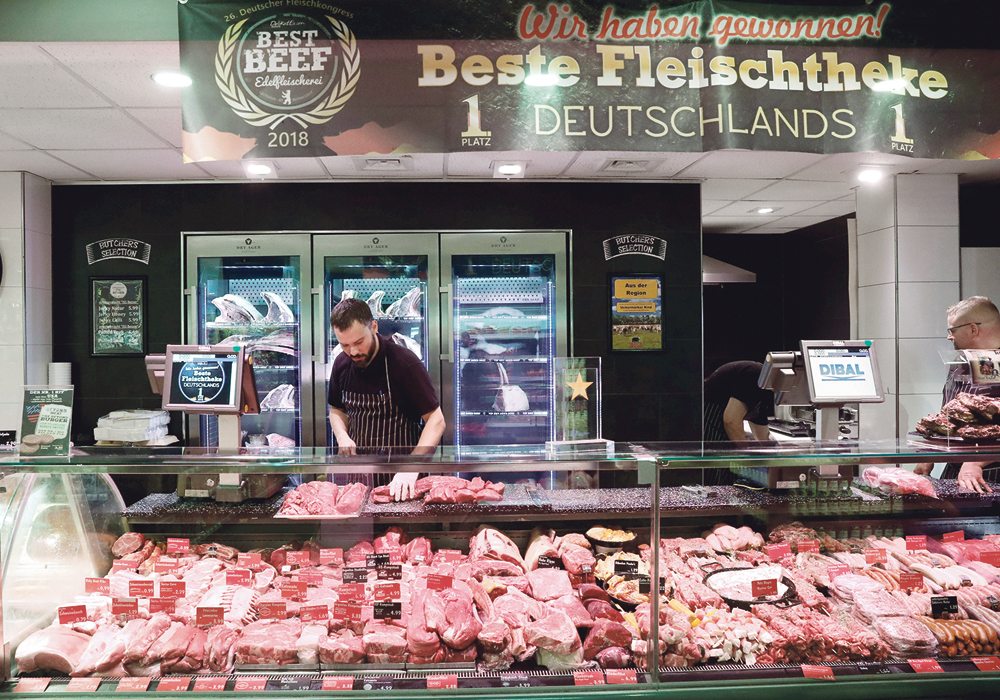Canadian farmers frustrated over an ever widening gap of understanding between themselves and urban consumers should learn what is happening in Europe.
What many Canadian farmers fear could happen here regarding government environmental and animal welfare policy is already law in parts of Europe.
And Europeans are debating new policies that could have even greater effects on farming and how food is produced.
Policy ideas that emerge in Europe often cross the ocean and gain traction in North America and elsewhere. The changes in swine housing underway here are an example of this type of idea migration.
Read Also

Critical growing season is ahead for soybeans
What the weather turns out to be in the United States is going to have a significant impact on Canadian producers’ prices
Not every idea gains traction but I think the views of society across the developed world about food production and its impacts on the environment and livestock are evolving in a way that can’t be halted.
It is best for farmers if they understand what is coming at them and become involved in the discussion to add to understanding and to mitigate the negative effects on their livelihoods.
Last week, members of the European Parliament discussed a proposal for a “sustainability charge” on meat that could become part of a new agricultural policy and also a wider framework called the European Green Deal.
The tax, although proponents don’t want to call it a tax because of the negative connotations, has similarities to Canada’s own carbon tax.
Revenue raised from a meat sustainability charge would be redistributed to low income earners who would struggle to pay more for meat and also to producers to help them change the way they farm.
This is not the first time a meat tax has been discussed.
Last summer, members of Germany’s parliament discussed the possibility of doing away with meat’s favourable treatment under the country’s value-added tax.
The proposal would see the VAT on meat, currently at seven percent, increased to the same level charged on most goods — 19 percent.
Proponents of these ideas argue that meat consumption should be priced to reflect its costs on the environment and on animal welfare.
They refer to climate change research that tallies the carbon footprint of livestock production, including charges for methane emission and feed grain production among other factors. Alas, they ignore the many environmental benefits of livestock production.
The carbon data is new ammunition that animal rights activists gleefully seize upon to advance their long-term campaigns to end meat consumption.
According to news accounts, the European Parliament discussion focused on a report commissioned by the True Animal Protein Price Coalition, a grouping of animal rights, vegetarian and environmental advocates, and produced by Dutch consultancy and research company CE Delft.
It proposes that “sustainability changes” on meat be phased in over the next 10 years with the levy reflecting the supposed carbon footprint of each type of protein. Beef would face the highest cost and chicken the least.
CE Delft forecast the charges would reduce chicken consumption by 30 percent, pork by 57 percent and beef by 67 percent. It also forecast that it would reduce greenhouse gas emissions by nearly three percent.
The money raised would be shared in many ways, including things such as payments to farmers to help them transition, payments to low income earners, subsidies to lower the price of vegetables and fruits and programs to double nature reserves and forests.
European farmers are reacting to these and other developments in ways ranging from calls for moderation to mass protests in cities.
In November, tens of thousands of farmers, including a tractor convoy 10 kilometres long, travelled to Berlin to protest laws banning the use of certain pesticides and limiting the use of fertilizer.
French farmers with similar concerns also held large demonstrations around the same time and farmers generally across the bloc are complaining about proposed reforms of the EU’s Common Agriculture Policy and about the new trade deal with South American countries that could allow the increased import of lower cost food produced without the type of environmental restrictions that European farmers face.
These current ideas about a sustainability tax on meat in Europe might not be accepted by parliaments but you never know what can happen in the future.
It is good for farmers here to be aware of them and to be aware of and promote the efforts of the Canadian meat industry to show how it is evolving to be a sustainable component of a new greener economy.
I think Canadian meat producers have a great story to tell — things like data showing the carbon footprint of Canadian beef is among the lowest in the world and less than half the global average.
Also, grazing cattle is critical to the survival of remaining grasslands and the wildlife they sustain.
These stories and others like them are the ones that Canada’s politicians and opinion leaders need to hear.

















